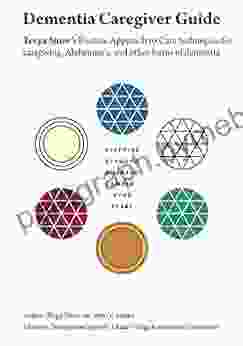Caring for individuals living with Alzheimer's and other forms of dementia can be a challenging yet rewarding experience. Teepa Snow, a renowned dementia care expert, has developed an innovative and compassionate approach to care that emphasizes respect, dignity, and person-centered communication.
The Positive Approach to Care: Key Principles
1. Person-Centered Care
The Positive Approach to Care places the individual at the center of the caregiving experience. Caregivers are encouraged to understand the person's life story, preferences, and values to provide tailored and meaningful support.
2. Respect and Dignity

Individuals living with dementia deserve to be treated with respect and dignity regardless of their cognitive abilities. Caregivers should address them by their preferred name, listen attentively, and involve them in decision-making whenever possible.
3. Making Connections
Communication with someone living with dementia can be challenging, but the Positive Approach to Care emphasizes finding ways to connect. Caregivers can use nonverbal cues, such as touch, eye contact, and facial expressions, to establish emotional bonds.
4. Embracing the Remaining Abilities
Instead of dwelling on the lost abilities, caregivers should focus on the person's remaining strengths and abilities. By providing opportunities for engagement and purpose, caregivers can help individuals maintain a sense of self-worth and well-being.
Teepa Snow's Techniques for Positive Care
- Validation Therapy: This technique involves listening and acknowledging the person's feelings, even if they seem confused or inappropriate.
- Reality Orientation Therapy: This approach helps to provide the person with a sense of time, place, and identity by providing regular reminders of their environment.
- Rehabilitation Therapy: This focuses on helping the person regain lost skills or develop new ones through targeted activities.
- Person-Centered Communication: This technique involves communicating using clear, simple language and nonverbal cues to ensure the person feels heard and understood.
- Bathing with Love and Care: This technique promotes hygiene and well-being by creating a calm and respectful environment for bathing.
Benefits of the Positive Approach to Care
- Improved quality of life for the person living with dementia
- Reduced stress and burden for caregivers
- Enhanced communication and bonding between caregivers and individuals
- Preservation of the person's identity and dignity
- Promotion of a more positive and holistic approach to dementia care
Teepa Snow's Positive Approach to Care is a transformative approach that empowers caregivers to provide compassionate and effective support to individuals living with Alzheimer's and other forms of dementia. By embracing person-centeredness, respect, and dignity, caregivers can create a more positive and meaningful caregiving experience for both themselves and their loved ones.
About the Author
Teepa Snow is a leading dementia care expert with over 40 years of experience. She has developed innovative techniques for dementia care and is a sought-after speaker and trainer worldwide. Her book, Positive Approach to Care, has become a valuable resource for caregivers and professionals alike.


























































































